About this much….
Hundreds if not thousands of wonderful and informative talks and lectures are available at the Ayn Rand e-store.

Hundreds if not thousands of wonderful and informative talks and lectures are available at the Ayn Rand e-store.
 As I wrote in a previous post, the Ayn Rand Institute has made available for download almost all of the talks that Ayn Rand presented at the Ford Hall Forum. I have been listening to them in chronological order and trying to make notes of when I come across interesting quotes to share. There have been plenty of quotes, but I am rarely able to follow-up later as I listen to them in my car during my daily commute.
As I wrote in a previous post, the Ayn Rand Institute has made available for download almost all of the talks that Ayn Rand presented at the Ford Hall Forum. I have been listening to them in chronological order and trying to make notes of when I come across interesting quotes to share. There have been plenty of quotes, but I am rarely able to follow-up later as I listen to them in my car during my daily commute.
Recently I was able to both make a mental note of the location of this quote (about
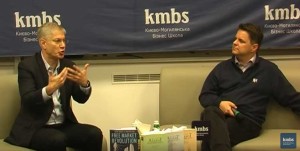 One of the greatest sources of motivation for me, in both my thinking and my posting here on the blog, is listening to talks by Yaron Brook. He is an incredibly engaging and prolific speaker and thanks to platforms such as YouTube I am able to watch far more of these talks than if I could only see those I attended in person. Indeed, I have viewed dozens of videos of his talks from all over the world but have only been to one
One of the greatest sources of motivation for me, in both my thinking and my posting here on the blog, is listening to talks by Yaron Brook. He is an incredibly engaging and prolific speaker and thanks to platforms such as YouTube I am able to watch far more of these talks than if I could only see those I attended in person. Indeed, I have viewed dozens of videos of his talks from all over the world but have only been to one
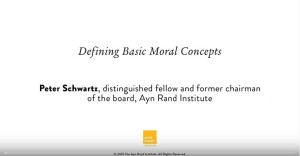 In this talk from the 2015 Objectivist Summer Conference, , author of In Defense of Selfishness, discusses the difficulty in defining moral concepts, among other concepts, due to package deals. Package deals are terms that try to integrate items by non-essentials,
In this talk from the 2015 Objectivist Summer Conference, , author of In Defense of Selfishness, discusses the difficulty in defining moral concepts, among other concepts, due to package deals. Package deals are terms that try to integrate items by non-essentials,
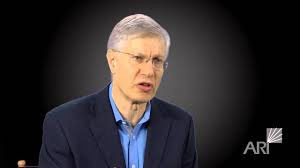 During his recent lectures, Yaron Brook has spoken a lot about the evils of equality and the virtues of inequality. For those that are unfamiliar with him or with Ayn Rand’s philosophy this might seem to imply that he is in favor of discrimination by non-essentials, i.e. racism, sexism and etc, but this is the farthest thing from the truth. In his recent talk in Sweden, he spells out exactly in what sense he feels equality has any relevance:
During his recent lectures, Yaron Brook has spoken a lot about the evils of equality and the virtues of inequality. For those that are unfamiliar with him or with Ayn Rand’s philosophy this might seem to imply that he is in favor of discrimination by non-essentials, i.e. racism, sexism and etc, but this is the farthest thing from the truth. In his recent talk in Sweden, he spells out exactly in what sense he feels equality has any relevance:
The only sense of equality that means anything
 Yaron Brook, president of the Ayn Rand Institute, spent several weeks recently on a speaking tour through Europe and Russia. The theme for these talks, largely, was the theme of his, with Don Watkins, forthcoming book: the idea that equality is unfair and that inequality is moral and just.
Yaron Brook, president of the Ayn Rand Institute, spent several weeks recently on a speaking tour through Europe and Russia. The theme for these talks, largely, was the theme of his, with Don Watkins, forthcoming book: the idea that equality is unfair and that inequality is moral and just.
This particular talk was given at Högerteknologerna and Fria Moderata Studentförbundet, Sweden. Before he begin the main talk, he commented that in other places where he had given talks the Q&A sessions
 From 1961 through 1981, Ayn Rand spoke many times at the Ford Hall Forum, the “nation’s oldest continuously operating free public lecture series.” Earlier this year the Ayn Rand Institute made almost all of these talks available for download, free of charge. I had listened to many of these already (many have been available to stream from Soundcloud), but some were completely new to me.
From 1961 through 1981, Ayn Rand spoke many times at the Ford Hall Forum, the “nation’s oldest continuously operating free public lecture series.” Earlier this year the Ayn Rand Institute made almost all of these talks available for download, free of charge. I had listened to many of these already (many have been available to stream from Soundcloud), but some were completely new to me.
I set myself the project of listening to them all in chronological order, with the goal of
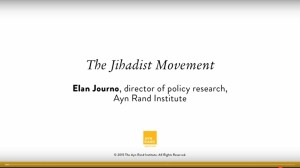 At the 2015 Summer Objectivist Conference Elan Journo, author of Winning the Unwinnable War, presented a talk on the jihadist movement. While he touches on the material strength and successes they have had, e.g. attacks in Paris, Copenhagen and Garland as well as the spread of ISIS, the main emphasis was on what provides the moral strength of the movement. As he states early in the talk:
At the 2015 Summer Objectivist Conference Elan Journo, author of Winning the Unwinnable War, presented a talk on the jihadist movement. While he touches on the material strength and successes they have had, e.g. attacks in Paris, Copenhagen and Garland as well as the spread of ISIS, the main emphasis was on what provides the moral strength of the movement. As he states early in the talk:
But more significant than all those material gains and measures of its strength is the moral strength.
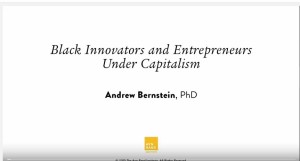 Someday I will be able to attend the Objectivist Summer Conference, OCON, but until then at least the Ayn Rand Institute posts videos of some of the presentations, such Andrew Bernstein’s talk about great black innovators in the United States, including the first self-made female millionaire in history, Madame C.J. Walker. He discusses not only examples of the amazing successes achieved by black’s in the United States but also the obstacles they had to overcome to succeed.
Someday I will be able to attend the Objectivist Summer Conference, OCON, but until then at least the Ayn Rand Institute posts videos of some of the presentations, such Andrew Bernstein’s talk about great black innovators in the United States, including the first self-made female millionaire in history, Madame C.J. Walker. He discusses not only examples of the amazing successes achieved by black’s in the United States but also the obstacles they had to overcome to succeed.
Weaving
 I recently came across a video posted by the Federalist Society of a talk given by ARI’s Onkar Ghate on selfishness. If you have read Ayn Rand or listened to other talks by Dr. Ghate or Yaron Brook, much of the information covered in this talk will be familiar, but I find it is often (always?) helpful to revisit ideas you are familiar with in order to achieve a better understanding of them.
I recently came across a video posted by the Federalist Society of a talk given by ARI’s Onkar Ghate on selfishness. If you have read Ayn Rand or listened to other talks by Dr. Ghate or Yaron Brook, much of the information covered in this talk will be familiar, but I find it is often (always?) helpful to revisit ideas you are familiar with in order to achieve a better understanding of them.
In this case, this deeper understanding came when Onkar answered the first question in the Q&A